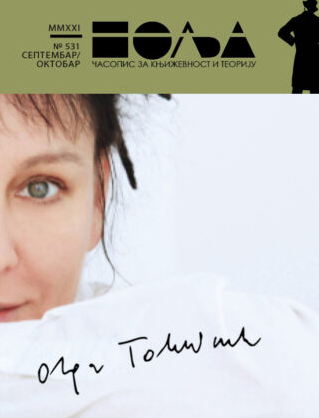We kindly inform you that, as long as the subject affiliation of our 300.000+ articles is in progress, you might get unsufficient or no results on your third level or second level search. In this case, please broaden your search criteria.
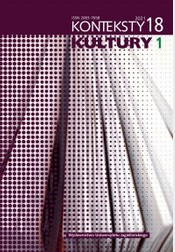
Opracowanie tekstu: Radosław Kuliniak, Mariusz Pandura; Dziennik osobisty (selection), editing: Radosław Kuliniak, Mariusz Pandura
More...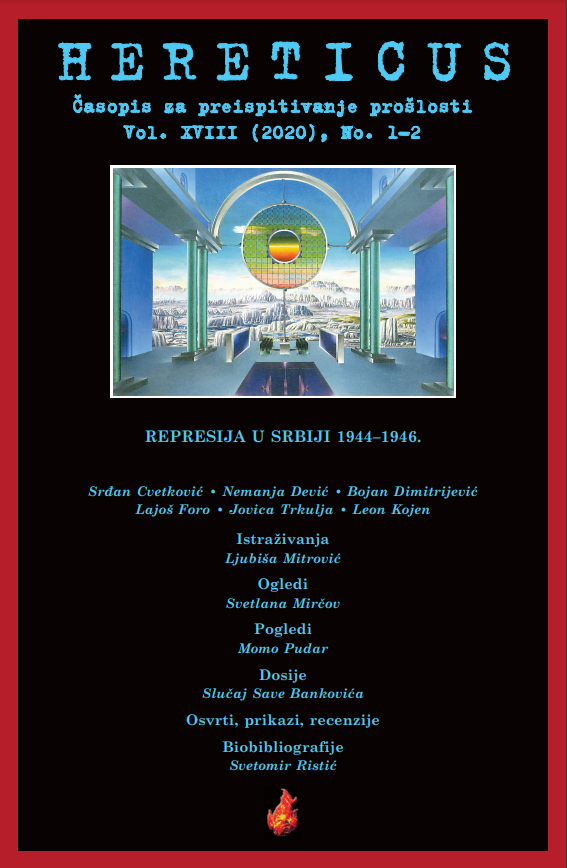
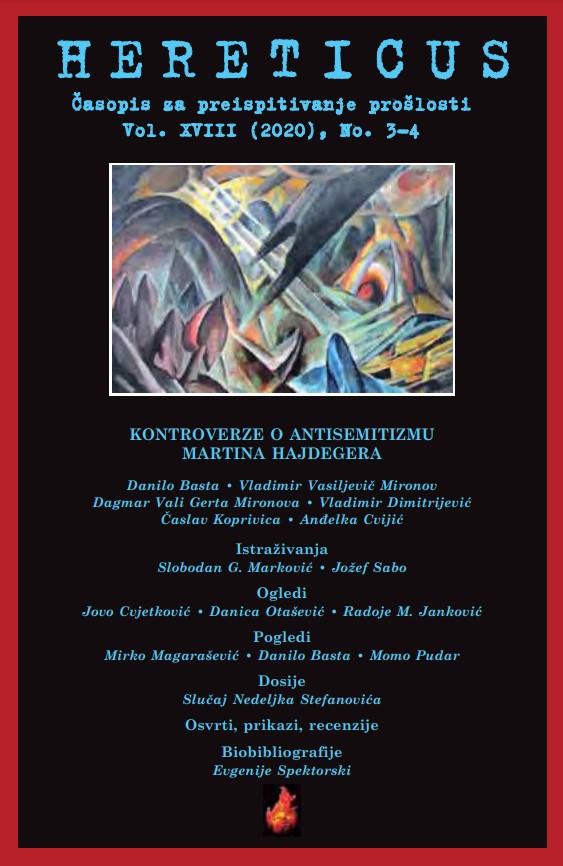

A hard and sad fate befell Nedeljko Neđo Stefanović, a teacher and principal of the Elementary School in prewar and wartime Ivanjica. He was one of the best students during his school years and a model teacher. Also, he served as a reserve officer in the Royal Army. The oath of allegiance to the king, which he took during his military service, committed him to remaining loyal to the Yugoslav Army in the Fatherland during the war. Although he perpetrated no evil deed, he was persecuted by the new authorities. He was successfully hiding from the persecutors, and the people, whose favor he enjoyed, kept him safe until spring 1948. He was arrested and put on trial in the Court-Martial in Kragujevac. Although there was no evidence of any crime, he was sentenced to death and executed at Metino Brdo (Meta’s Hill) near Kragujevac. After more than six decades, he was rehabilitated by the Superior Court in Kragujevac in 2012. This paper presents Stefanović’s biography and, based on preserved documents, explains the mode of trial and execution and the rehabilitation process.
More...
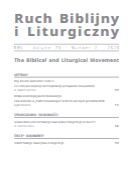
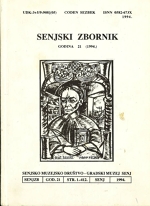
In the introductory part I've tried to acquaint the readers with the present-day secondary school in Senj, its constitution and a dilemma about its new name. The central part of the article covers genealogy and aspects of the secondary-school paper (Knight) from technical components (outward appearance, number of pages, format, editorial board, print) to its contents (topics it deals with, artwork and photos, the pupil's literary scientific contributions, humor, news). I emphasize the importance of this periodical from the popularization of the culture and artistic tradition of the city of Senj among the young.
More...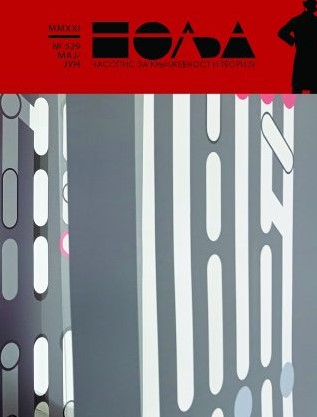
Текст предавања које је Уве Јонзон одржао 18. јула 1974. у Минхену. У оквиру летњег курса тамошњег Гете института, без рукописа пред собом причао је о настанку романа Сваки дан у години. Предавање је снимљено на магнетофонску траку, а др Моника фон Крафт га је транскрибовала. Овај текст је заснован на сачуваној верзији тог транскрипта из заоставштине Увеа Јонзона и под насловом: Uwe Johnson, „Wie es zu den Jahrestagen gekommen ist“, објављен у: Eberhard Fahlke (прир.), „Ich überlege mir die Geschichte...“ Uwe Johnson im Gespräch, Suhrkamp Verlag, Франкфурт/M., 1988, стр. 65–71.
More...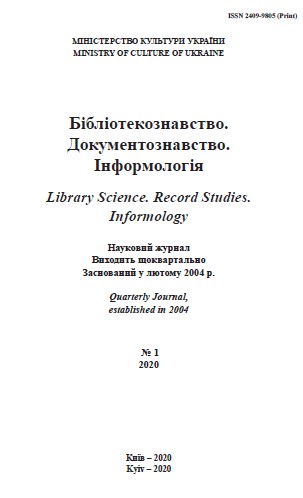
The purpose of the article. On the basis of current scientific achievements, the role of the editor of the scientific journal is considered. Methodology. The article is a narrative review of the literature. The methods of analysis, classification, and generalization, as well as a systematic approach, were used in the review. The methodology used made it possible to comprehensively analyze the roles of the editor of a scientific journal. The scientific novelty is to broaden the perception of the editor’s role in the editorial and publishing process. Conclusions. The editor of the scientific journal acts as the gatekeeper of science, organizer, consultant, and recruiter. In the role of gatekeeper, the editor filters the results of scientific research, selecting the ones that will be published. As the organizer, the editor is responsible for the interaction of all participants of the editorial and publishing process and the strategy for the development of the journal, initiates the journal’s entry into scientific-metric databases, and establishes external links of the journal. As a consultant, the editor helps the authors improve the quality of the manuscripts, and in the role of recruiter he or she forms the editorial board, appoints reviewers, invites new authors to collaborate. In general, the editor’s roles are reduced to supporting the interests and interaction of four stakeholders: the founder of the journal, the author, reviewers, and the reader. The identity of the editor is invisible when the editorial and publishing system works smoothly. However, in problematic situations, for example, when an unreasonable decision is made regarding the manuscript when the reviewer receives an inappropriate manuscript for examination when there are not enough articles to fill the volume when conflicts and misunderstandings arise between the participants of the editorial and publishing process, the editor has to balance the needs, opportunities, and requirements of all stakeholders. In addition, the editor is responsible for adhering to the principles of academic integrity.
More...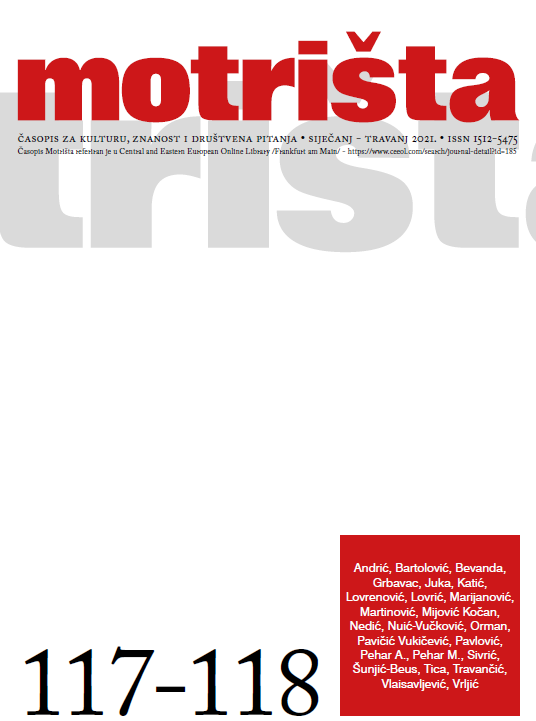
Diary notes by Darko Juka ("Urlik susreta koji se pamti"; "Nijedan oprost nije bezuvijetan"; "Sve Jazovke našeg vremena"; "Tamo u molitvi ne zatvarajte oči")
More...
In memoriam: academic Jakov Pehar (1928. – 2021.)
More...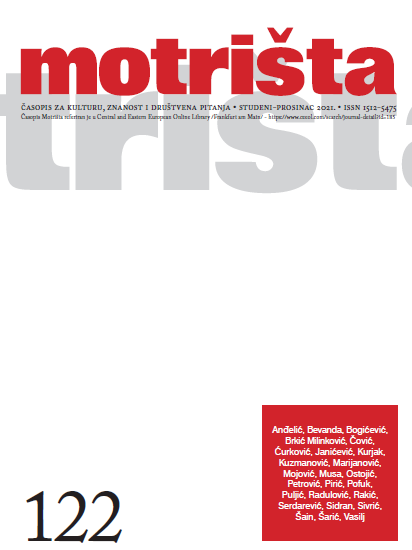
Sarajevsko Oslobođenje ima malu rubriku u kojoj tri osobe budu proglašene junacima ili zlikovcima dana. U jednom broju sredinom travnja, dan nakon svog prvoga službenog posjeta Bosni i Hercegovini, palac gore dobio je Ivo Josipović za sve što je u ta dva dana učinio i rekao u susjednoj zemlji. Na dnu stupca bio je Senijad Ibričić, reprezentativac BiH, pohvaljen za odlične igre i golove s kojima je ovog proljeća bio zaredao u dresu splitskog Hajduka. Treći čovjek, između državnika i nogometaša, bio je mostarski odvjetnik Josip Muselimović.
More...
There are 19 unpublished letters written by latter bishop of Žiča Jefrem Bojović, preserved in The Manuscripts Department of The Russian State Library of Moscow. These letters, addressed to Nil Alexandrovich Popov, are part of a personal collection of this famous Russian scholar in the field of history and Slavic literature. Letters from this collection were written from 1874 until 1886, while Bojović was a student at The Moscow Spiritual Academy and a professor in the Seminary of Belgrade. These letters are a great source for Bishop Jefrem’s biography, especially for understanding his relationships with Russia. They witness a sincere friendship with Popov, one of the most prominent people in relations between Serbs and Russians, during the second half of the 19th century. These letters are important in order to understand Bojović’s point of view, regarding the issues of Serbian social, political and church life in the 9th decade of the 19th century. Serbian Government led Pro-Austrian politics during that period of time, which affected relationships within Serbian Church and society. The most significant consequence was an uncanonical replacement of the Serbian Metropolitan Mihailo (Jovanović) and his hierarchy. Bojović was the first source witness of these events, who was actively supporting Metropolitan Mihailo. During his studies in Russia, Jefrem Bojović became a true lover of Slavs, which formed his further views. The mentioned documents were analyzed in this study for the first time, and they will hopefully enrich the biography of Jefrem Bojović. This study should help us to understand better the occasions within the church, society and politics in Serbia during the ninth decade of the 19th century.
More...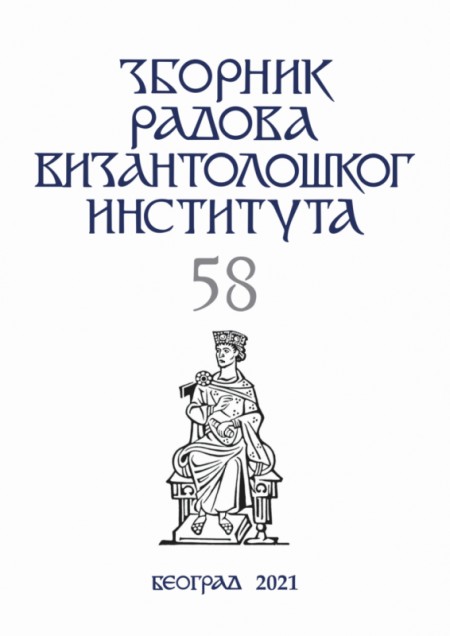
The paper examines a previously largely unknown late-Byzantine document from the archives of the Barlaam monastery in Meteora. Written on paper, the document is only partially preserved, while based on evidence from within the text itself it is attributed to the Despot Nikephoros II Komnenos Angelos Doukas, issued in favour of the town of Stagoi. The type of script dates it to within the late-fourteenth century, while the document provides information regarding society and the economy of the town during the middle part of the century. Following an extensive discussion of the contents of the document, a diplomatic editio princeps is also included.
More...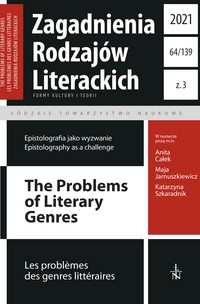
The aim of this article is to analyze the collection of letters between Wiktor Woroszylski and the writers: Jerzy Stempowski, Jerzy Giedroyc and Zbigniew Żakiewicz. It is based on two volumes of Woroszylski’s letters, published in 2020. The paper reveals a letter as genre, which can be read as an evidence of a writer’s life, a historical document, as well as a commentary on a legacy. The first three parts of the text include an analysis of the collection of letters. It traces the characteristics of the relationships between the correspondents and the main subjects of the conversations along with the crucial writing strategies. The last part covers a wider reflection on the epistolographic work of Woroszylski. Firstly, the key features of the letter as a genre are considered, i.e. its performativity, dialogicality (connected with the relation between “you” and “I”) and at the same time conversion between the personal and textual self. Secondly, the main issue of the paper reveals Woroszylski as an author, a man, a correspondent and an activist but also shows how he manifests himself in the letters. The main purpose is to present Woroszylski as a subject of epistolary writing. It means that he has to be considered as a real person at a specific point in life as well as in the instance related to the situation of the text. It is related to the author’s self-creation in two meanings of this word: self-presentation and self-conceptualization. Nevertheless, the image of Woroszylski remains internally consistent and, furthermore, it is compatible with his biographical and creative portrait. To conclude it must be admitted that his epistolography should be examined among the writer’s other works, because, as a genre, letters refer to the real world and require both textual and non-textual references.
More...
Interview with Professor Jerzy Bralczyk by Magdalena Wasąg on April 27, 2021
More...